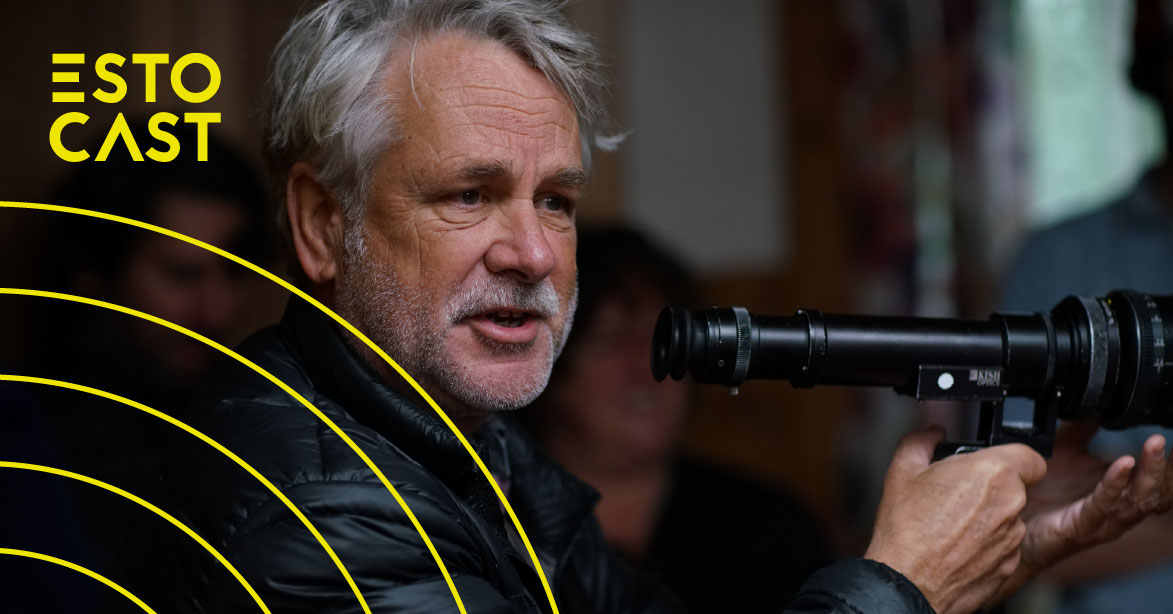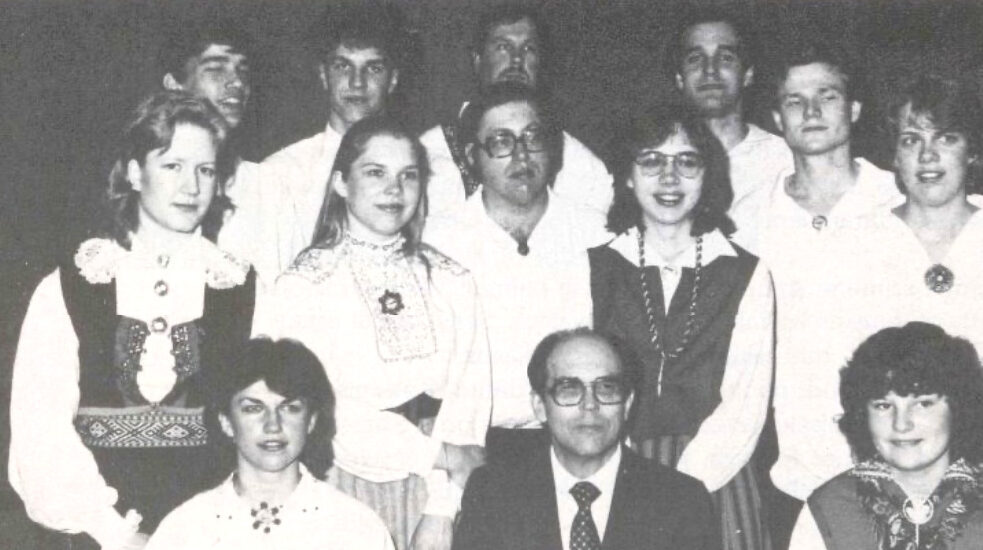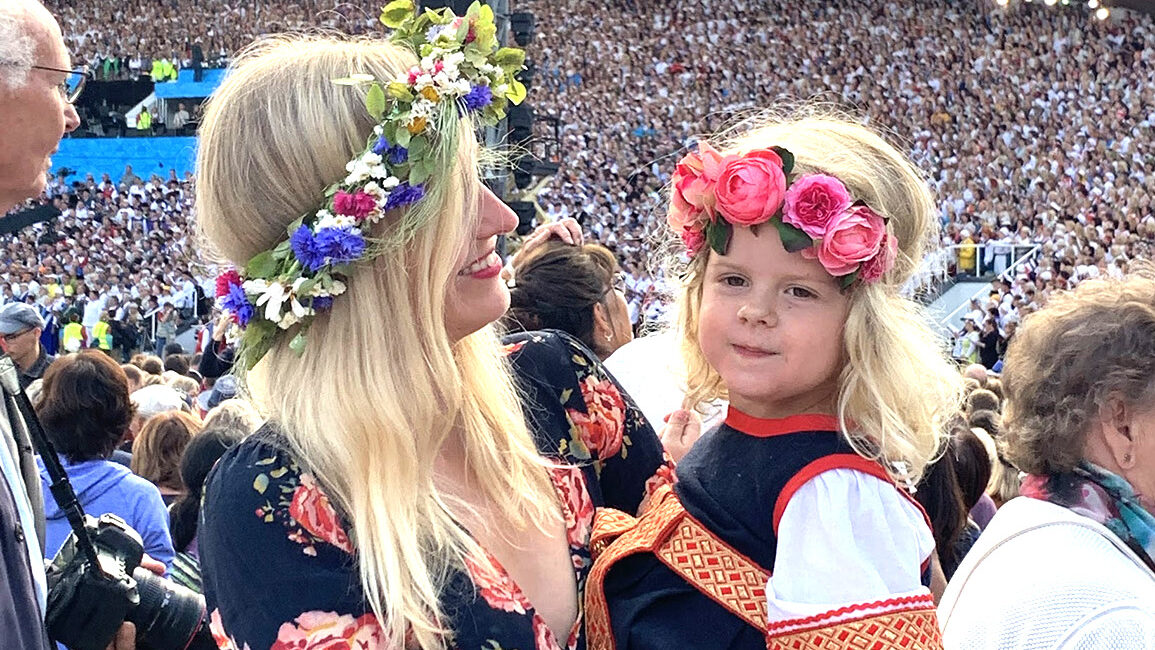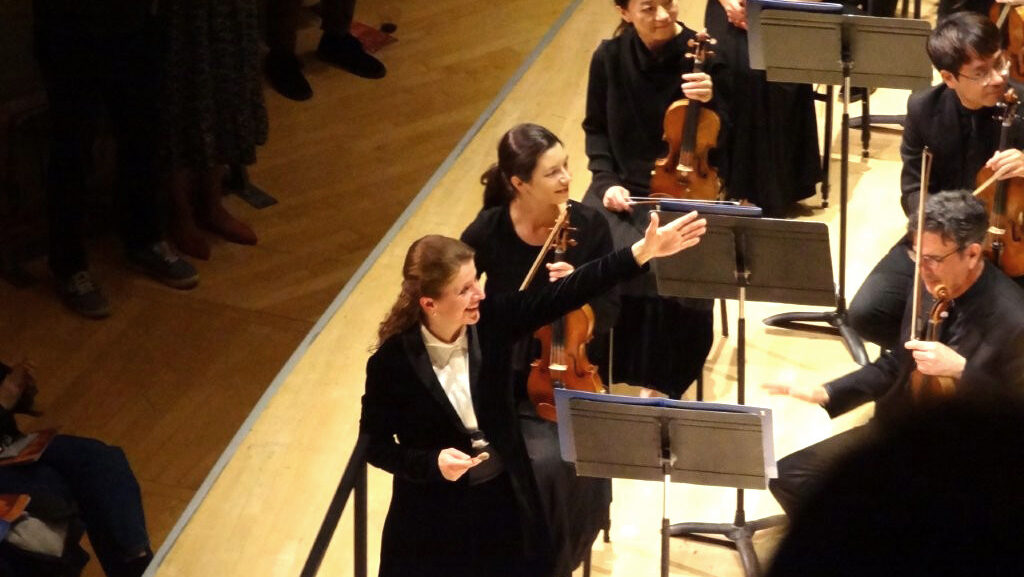From Adelaide, Australia, the film “Aussie Esto” provided a glimpse of Estonian life down under, including breaking out in a sweat in order to have a traditional Christmas dinner of roast pork and sauerkraut. By late December, the temperatures in Australia can climb to close to 30C, but this family perseveres in upholding Estonian traditions.
From Estonia, with tongue firmly in cheek, came the film “Aadu: The First, and Not the Last” about how a very large wind turbine was erected in Purtse. The film was submitted by Eduard Lepa, whose dry wit and humorous delivery made for a very entertaining seven minutes.
Along the same vein, Kohala TV by Greta Külvet and Sigrid Salutee, followed the life of its intrepid reporter who has his work cut out for him because there is no local TV channel to show his work. He gamely carries
Toronto filmmaker Kalli Paakspuu, who is also EstDoc’s program director, submitted two touching films. Awakening: as told by Roman Toi is a film paying tribute to the much loved choir master Roman Toi and his path from Estonia to Germany to Canada. He left a rich legacy of choral work in his path and Kalli says she is continually touched by his story. For example, Roman’s teacher composer Tuudur Vettik, who was one of the founders of the choral conductors’ generation in Estonia, was a key influence in his life.
From 1919-1940, Vettik was a music teacher at the Jakob Westholm Gymnasium in Tallinn, the Tallinn Teachers’ Seminar and the Tallinn Pedagogical Institute. In 1940, he started to work as a choir conducting lecturer at the Tallinn State Conservatory until he was illegally arrested in 1950. He was set free after staying in a number of prison camps in 1956 and was rehabilitated in 1968.
Kalli then took this inspiration further with her second film, Going to Beyond, a moody and mysterious production that featured Vettik’s dark composition Üle Toonela Tumeda Vee. Shot in the Rouge River area in Toronto, Kalli said the film’s theme follows Finno-Ugric mythology and depicts the journey “to the beyond” as a refugee.
Local Estonians’ experiences were also on fine display. Seedioru Lapsed by Kadri Bennett told the story of the much-loved children’s camp in Northern Ontario, which has been in operation since 1955 to provide a cultural experience for children of Estonian descent.
And friends Ragne Pajo and Katerina Malat used their trusty iPhone to create My Perfect Canada, a film about the quest to have an idyllic summer experience on a remote lake, where they hoped the haunting cry of a loon would make their evening complete. When no loons were in evidence, they called on their iPhone to provide the requisite loon cry.
EstDocs has gotten off to a wonderful start. This is a festival not to be missed – from the emotional and the urgent, to the clever and downright hilarious, each film is a capsule of delight. It’s a very unique opportunity to find out new nuggets of information about our culture and be touched by the tenacity and inventiveness of the filmmakers.
The festival begins on Friday, Oct. 19 and runs to Oct. 23. Festival Director Kristi Sau Doughty says a meaningul addition this year is the inclusion of films by Estonia’s Baltic sisters Lithuania and Latvia.
A tasty addition to the festival lineup as well are breakfasts on Oct. 21 and 21 catered by the renowned Tallinn restaurant SALT.
And, as always, there will be interesting talks and much food for thought.
Go to estdocs.com to check the full schedule and plan to attend as many as you can!
– By Karin Ivand



